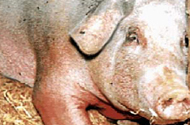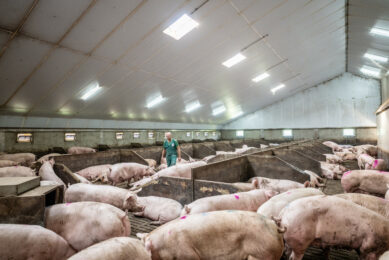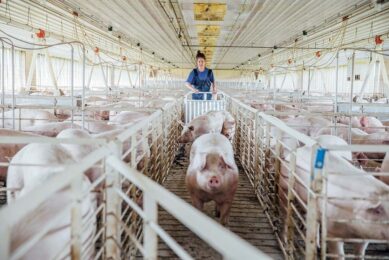Inhibitor developed for Classical Swine Fever

Researchers of the department of virology of the Catholic University of Louvain (KUL) and the Veterinary and Agrochemical Research Centre (Coda-Cerva) in Ukkel, Belgium have developed a strong inhibitor for the Classical Swine Fever (CSF) virus.
This can possibly prevent massive culling of pigs. A KUL subsidiary is now developing the new product into a medicine that can be marketed, although this may take another few years.
The new product proves to be capable of almost entirely suppressing virus replication and largely prevent the spreading of the disease from infected to non-treated animals in the same pen.
No culling
In addition, the the products allows to preventively treating healthy animals within a security zone, in order not to have them culled. It is hoped that the new product can limit outbreaks of CSF without massive culling.
At the moment, at a CSF outbreak within the European Union, a security zone with a radius of several kilometres is drawn up, in which all live animals are being culled. In the Netherlands, in 1997-1998, almost 2 million animals had to be culled, most of them healthy animals, costing the industry about €250 million.
Related website:
• Catholic University Louvain (KUL)
• Veterinary and Agrochemical Research Centre (Coda-Cerva)











